
Exposé Online
What's old
Exposé print issues (1993-2011)
- 1 (October 1993)
- 2 (February 1994)
- 3 (May 1994)
- 4 (August 1994)
- 5 (October 1994)
- 6 (March 1995)
- 7 (July 1995)
- 8 (November 1995)
- 9 (March 1996)
- 10 (August 1996)
- 11 (February 1997)
- 12 (May 1997)
- 13 (October 1997)
- 14 (February 1998)
- 15 (July 1998)
- 16 (January 1999)
- 17 (April 1999)
- 18 (November 1999)
- 19 (May 2000)
- 20 (October 2000)
- 21 (March 2001)
- 22 (July 2001)
- 23 (December 2001)
- 24 (April 2002)
- 25 (September 2002)
- 26 (February 2003)
- 27 (August 2003)
- 28 (December 2003)
- 29 (April 2004)
- 30 (September 2004)
- 31 (March 2005)
- 32 (September 2005)
- 33 (May 2006)
- 34 (March 2007)
- 35 (January 2008)
- 36 (October 2008)
- 37 (July 2009)
- 38 (July 2010)
- 39 (Summer 2011)
Features
A New Generation of Spanish Music —
Jesús Filardi of Galadriel 1995
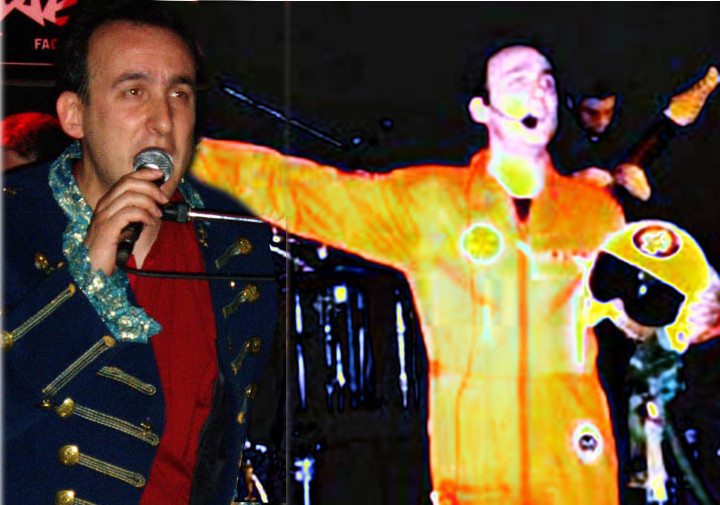
For over ten years now, Galadriel has been one of only a few active progressive rock bands from Spain. Their debut LP Muttered Promises from an Ageless Pond from 1988 caught the ear of the folks at Musea, who agreed to release it on CD, and also release their second Chasing the Dragonfly in 1992. During the period from mid-93 through mid-94, the band went through a series of personnel changes that in the end left lead vocalist and composer Jesús Filardi as the only original member. Here, Filardi talks frankly about the band, the albums, some of the changes that have taken place, and the outlook for the future.
by Peter Thelen, Published 1995-11-01
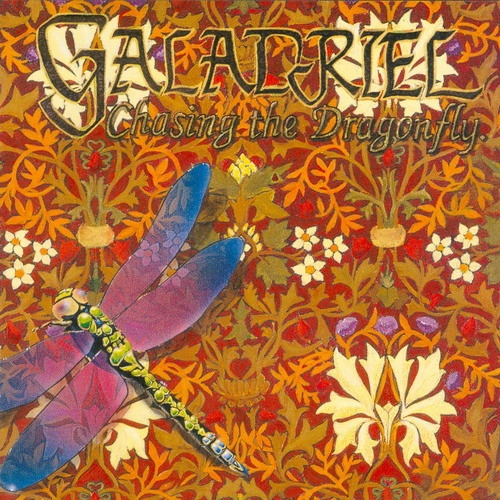 Where are things at with the band right now?
Where are things at with the band right now?
Well, after the second album and the promotional work we did with it, we suffered a lot of changes, for several reasons. A lot of people left the band...
All at once?
No... gradually, but they all left the boat and it started sinking. So after that there was a time when I was completely alone, so I started looking for some new people, and at the same time I started working on new music. I have about a hundred minutes of new music now ready for the third CD, I'm finding the new people, so now we have to start arranging that new material. With the old stuff, they've learned it and we've been playing together, we've played in Barcelona last summer, and Italy and France. Now I'm hoping we can calm down a bit and start working on the new music.
What does your lineup look like now?
We're five guys, I'm the only one left from the old days. Where I live – I live in a town called Alcala de Henares, it's about 30 km from Madrid, these guys are all teachers in the academy, all very talented. The drummer is into electronic drums also, and I hope to take advantage of that in the new music. I like percussion very much, besides the drums, you know. I like the drummer who's not always just banging out... you know, I like him to do some other percussion, lighter stuff, little things. On the previous albums we had a Brazillian drummer and percussionist, and he really had a way of doing these things... if you listen to our second album you'll hear there's always percussion on it, it's beautiful, and really makes it special. But he had to leave the band when he moved to Barcelona with his wife and kid, it's 600 km away and we just can't work together from this distance. But when we gigged in Barcelona and he came and played with us, it was great seeing the new drummer and the old percussionist playing together, he had this gigantic set on stage, all these bells and wood blocks and all these other things happening and it was very very interesting. So he'll be recording on the third album, the percussion at least, we'll bring him over from Barcelona.
What about the other members of the old band, what's become of them?
The others left because they were kind of tired, the guitar had been with me since school ten years ago, he left to concentrate on his job. Another guy was coming 800 km away from the north of Spain every time we had a gig, that was the keyboard player – it was incredible, and very frustrating because he couldn't be there every day. Plus we lost our rehearsal room, all these setbacks, so many things to cope with. But now we're back into it, we found a new place to rehearse last year, and things are going well. Now we just need to calm down a bit, and work on the new material. In about a year, if we get everything really worked out, and we get more money from our sales, we should be ready to start recording the new album.
Will you be going with electronic drums on the album, or will...
No, I'm very fond of acoustic drums, I only wanted the electronic drums to patch up some of the effects that the percussionist did. I don't like electronic drums for a basis.
What's the music scene in Spain like today?
In the 70s there were a lot of good bands like Triana, Iceberg, Bloque, Iman – now Musea will reissue their second album on CD, an incredible album, a great band.
The second track on it is just beautiful!
...And the fourth track at the very end, a three minute song with vocals, it's called "Niños" – "Children," great. Those were like the first generation of Spanish progressive bands. Galadriel is more of a second generation band because of our age, more in tune with the 80s and 90s. With Galadriel, there are not many other bands – there are only a few other bands, like Altair, who released their first CD and then split up, and Harnakis, who made a CD some time ago and they've split up too, we played at a festival with them once. I was very good friends with the keyboard player, she lives in Barcelona. Then there's another band called Rivendel in the north, they're just now doing their second CD, they have a kind of dark, Van der Graaf type atmosphere... Who else...?
It seems like, relatively speaking, things have dropped off pretty drastically over the years.
In the seventies there was a whole different conception of music and the music industry. Today the industry is taking complete ownership of the musicians, the musicians ideas don't seem to count for much. It's a big struggle to do anything. We all have other jobs, we can't live off of Galadriel. We do it for the pleasure of the heart and the satisfaction.
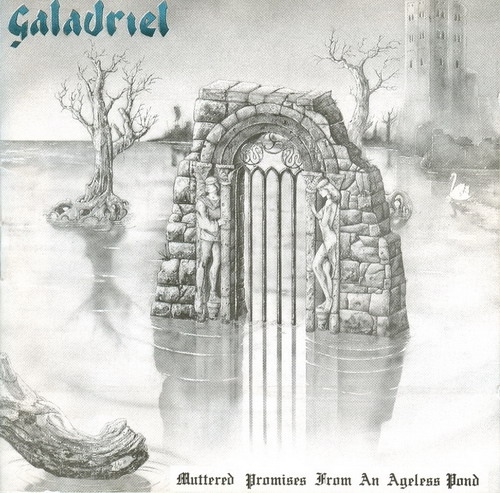 Explain how Galadriel happened to join up with Musea.
Explain how Galadriel happened to join up with Musea.
Musea took an interest in us when we released our first album Muttered Promises. We did that one all by ourselves, we even had to go to the factory, pick up the records, put all the inserts... We made a thousand of those and Musea started selling it, then at the end of the year they asked us if we would be interested in releasing it on CD with some extra tracks. We agreed, so they took over that end of things, they are doing all the production and distribution, which allows us to concentrate more on our music. They are very honest, and it's really hard to find honest people today - people want to make money at anybody's expense, music is not their primary interest. We are happy with Musea, they get to most parts of the world, maybe not in huge quantities, but enough - and we'll be doing our third album with them for sure.
If the big music industry gets interested in this sort of music, I'm afraid they'll choke the life out of it just like they did in the 70s. So it's important that labels like Musea survive and grow...and it's equally important that they continue to sponsor live events.
Yes, these kind of events are important because they give us so much energy, at least for me – I've gone to France several times to see these bands play live, I've seen Minimum Vital several times, other performances. I went to the place where we were going to play in Paris and I saw the band we were going to play with...
You gigged with Tale Cue, didn't you?
No, we played in Paris with a band called Tai-Phong. I hadn't heard of those guys before, but they reformed. I was planning on playing with Jean-Pascal Boffo, you know this guy?
Yes.
He's a great guitar player, really really advanced. He said he would but then things got confused somehow and [it never happened]. Anyway, we played by ourselves in Bordeaux the night before – after the gig we put everything into the van, it's three in the morning, had a hamburger, drove to Paris, arrive there at ten in the morning, dead tired, sound check... my hands were trembling when we went onstage, not because I was nervous, but because I was so tired. But it was really worth it, when you go on stage and all these people are screaming at you, it's fantastic. But I don't [make any money] doing that. When we went to Italy, I think I got a 24 hour trip in a van, I caught a cold, and I got – honestly, about fifteen dollars! (Lots of laughs!) So there's no future here...
(...more laughs) Yeah, keep your day job!
For example, in Bordeaux we were signing some autographs, and this lady came up to me, she was about 43 years old, and she'd told me she had come all the way from Torino [in Italy] just to see us. That was great, I had to give her a couple of kisses! She and five other people had driven all that way. It was great.
When you played in Bordeaux, what was the attendance like?
A hundred people.
And in Paris?
About a hundred fifty. In Italy it was better, nearly three hundred. In Italy, my wife was there out in the crowd, she told me the people in the first few rows were singing the lyrics along with me. It's very stimulating. I mean, what the hell, even if I only make fifteen bucks and end up with a cold after the show and have to go to bed... who cares. I'll keep my job and go on.
How many shows do you figure you play in a year, on the average?
Galadriel is going strong on a compositional basis, the [future is solid]. The only thing we are really lacking is the gigging. At the moment we're looking for the gigs all by ourselves, and we're not getting that many at all. We might be doing four gigs a year, which is terrible... not enough. We've sent some stuff to a management company, but in Spain everybody wants pop music, but we'll hang in there, maybe there are opportunities abroad.
What music do you listen to?
Basically I like anything that has a message of beauty and it's original and interesting. I don't like copy bands, I like those who take things a step or two forward, like Halloween – their music is interesting and it isn't predictable. I like Minimum Vital, they're powerful, they have initiative, plus a lot of musical know-how... Jean-Pascal Boffo... and of course I like all the old Genesis, Yes, Gentle Giant, Renaissance, Camel... all these old people. As far as new people, I do like some new-age stuff – not everything, but I like Mark Isham, some Windham Hill stuff, Kit Watkins – which is sometimes new-age and sometimes progressive...
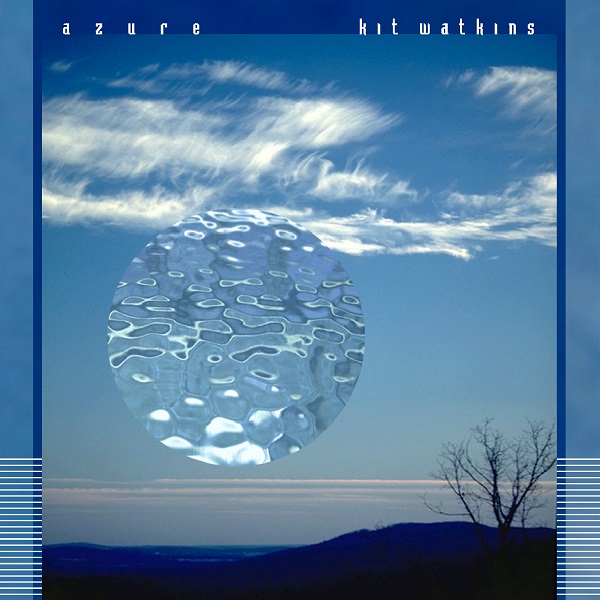 Do you know Azure?
Do you know Azure?
Yes, I have that! It's beautiful, I'm glad you're familiar with that, not too many people know about that one. I like classical music. I like the impressionists very much – 19th century, Erik Satie, Debussy, and all these people. I like folk music also, Clannad for example.
On Chasing the Dragonfly, there is a lot of music that seems to point toward... ethnic, or world music. Will Galadriel be continuing further in that direction?
I like that myself, I think it made a [sharp] difference between the first and the second one...
Yes, I think it was a good idea too.
So who do you know in the progressive scene, old or new, who made such an effort [to incorporate] percussion, like in a western sense? Not many bands. Phil Collins with Genesis, or Alan White... these guys were good, but... [their approach is very standard], but like this Brazilian drummer, you should've seen this guy play, he had all these little contraptions – I can't even imagine where he got them all from. Once we were playing in Cordoba in the south of Spain, and he came out with a snorkel, a tube, and he started movig it around like this (Jesús illustrates a circular motion above his head...), and it made a sound that was very specific, like "rhoo-rhoo.." – I can't even imitate it... and I was singing this very gentle part of "Escalia," when we're talking about all these people who are moving through the desert, running away from the oppression they had, and I heard this, and it was incredible... It's like how do you get this... color, if you don't investigate new things like this. Sometimes the symphonic focus is just too traditional. Anyway, most of that ethnic feel was due to the Brazilian drummer. The new album will probably be taking a slightly different approach, although I can't tell you exactly what that will be like at this point.
You composed the whole of the new album yourself?
Yeah, on the sequencer, all the bass lines, all the drums, but that's not the definitive version... this is just to give the other musicians an idea of what I want. This new technology makes it all possible, workstations with eight tracks.
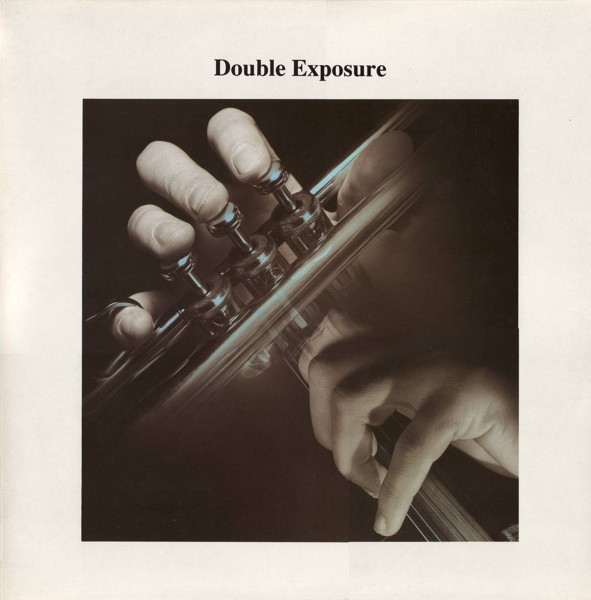 How was the writing accomplished on those earlier albums? The first time I heard of Galadriel was on a double-album compilation called Double Exposure. You're surprised?
How was the writing accomplished on those earlier albums? The first time I heard of Galadriel was on a double-album compilation called Double Exposure. You're surprised?
Man! You're going way back in time... hey, I'm glad though, I thought those things never got to anybody!
Well, some must have made it to the States... I found it here somewhere.
I'm really surprised, you really can't find it anymore. I think they only made five hundred copies of that. In that first period, we were a band, in the sense of five or six guys – three were doing the music, and I was doing all the melodies and vocals, and some minor arrangements – I didn't really do much of that at that time, though. I was studying basic piano, harmony, and music theory. In the second period, two guys [who had been writing] left the group, leaving one, and we kind of stretched out the rest of the band. The drummer did that fourth track "Under a Full Colored Sky" – I love that track, because it's different and had a strong sense of originality. I wrote that long track ["Gray Stones of Escalia"] and started playing around with the keyboard a bit. The guitar player wrote the rest of the songs, and others helped out a bit. But I was never into basic composition, because first of all I don't know that [much about] music – and I still don't, and secondly because these other guys were more talented than I. After we recorded the second album, we had all these problems in the band, and we didn't do any more composition at all. So, I was kind of fed up because I think it's important to constantly be developing new music. I didn't get any feedback from the people in the band because they all had different problems at the time. You can't force people, either, so I had to accept it. So since I bought a synthesizer about the same time we recorded the second album, I just started working at home. I started throwing hours and hours, sometimes I would work all night until morning, my wife would complain... but I've been working on this tape for two years, it's a ninety minute tape, full of material. I have other songs on the synthesizer which I couldn't fit, I have lots of stuff, it all came out – don't ask me how, just from working and working. Now all these guys have to do is arrange it. It's very interesting, very progressive, and it has a true sense of its own. We'll see what happens.
When do you figure you'll be ready to go into the studio with it?
We've already started working on one song, which has the title "Homeland." It's about that link we all have with the place where we grew up. It's a soft sort of a ballad – it's my song, but they've already begun chipping in, straightening it out. It's [the new band's] first attempt in this direction. I estimate at least another six months of work before we can do it. If all the material is ready and we still don't don't have the money, we'll look around for some help. Musea was a big help this way last time, they bent a lot of the rules for us. We also got loans from family members, and so on. That's how we released the second CD. We've paid about half of those loans down now, but we still have to sell more CDs. All this is like life, growing and learning how to do things better.
How are those CDs selling?
Good... well, we'd like to sell about a hundred thousand copies (laughs..) but we're not into that! With the first album, Musea sold two thousand of the CDs, and we sold two thousand LPs. The second CD, which has been out over two years now, has sold almost two thousand five hundred.
Those are fairly respectable numbers...
Nothing to dance around about, but not bad. Some bands get lost at five hundred copies. So, if we can sell another thousand copies, we'll be able to pay all the money back and record the next one. It's just a matter of time, but I'm not going to spend seven years waiting with my arms crossed if we have new material ready. We'll have to take a risk, we have to find the money – and once we have three, four, five CDs out, all of them start generating a lot of money. So my goal for the future is to have several CDs out that can collectively pay for the recording of the next one.
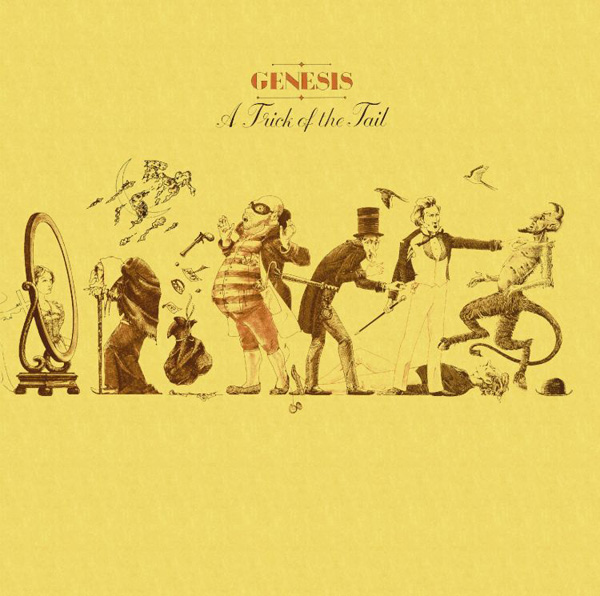 Where will Galadriel be five years from now?
Where will Galadriel be five years from now?
Man — that's a tough question. Well, you know I'm a real Genesis fan... I've always been a Genesis fan. Number one... the biggest. Since I first listened to A Trick of the Tail, I got this bug inside. This was like fourteen or fifteen years ago, since then I can't get it off my mind – this magical atmosphere... "Entangled," you can just lose your mind with it. Or "Squonk," or even Peter Gabriel's period. So, I wanted to sing. When I was a little kid I always sang along with the radio and I sang in a choir, but since discovering this kind of music I am so passionate about it, I have this bug inside me and I assure you that's gonna last a long time, even if I'm alone, or if I'm with other people, I'm gonna do it for a long time. So I can't say exactly where we will be in five years, but I can assure you we will be in a better known position than now... I believe in that old-fashioned ideal of having seven, eight, nine, ten records and you have your own... path. I also believe in evolution. As you get more mature you naturally learn how to do things better. I don't see myself losing interest anytime soon, and hopefully in those five years we'll get at least one chance to play in the states!
Filed under: Interviews, Issue 8
Related artist(s): Galadriel
What's new
These are the most recent changes made to artists, releases, and articles.
- Release: Kevin Kastning & Bruno Råberg - Across Tall Rain
Updated 2026-02-21 00:42:08 - Review: Gary Husband - Postcards from the Past
Published 2026-02-21 - Release: Daniel Crommie - Februa
Updated 2026-02-20 14:23:17 - Artist: Daniel Crommie
Updated 2026-02-20 14:22:43 - Release: b.mez - Under Circuitous Skies
Updated 2026-02-20 14:18:27 - Artist: b.mez
Updated 2026-02-20 14:17:34 - Release: Il Segno del Comando - Sublimazione - Live
Updated 2026-02-20 11:36:17 - Review: Maledictis - Echoes of Conscience
Published 2026-02-20 - Release: Lorenzo Montanà - Velan
Updated 2026-02-19 23:52:26 - Release: Erik Wøllo - Snow Tides
Updated 2026-02-19 23:45:00 - Release: The Forever Moment - A City Singing
Updated 2026-02-19 19:57:54 - Release: The Forever Moment - Here to Stay
Updated 2026-02-19 19:56:27 - Release: Hyper Gal - Our Hyper
Updated 2026-02-19 19:52:48 - Release: Mathieu Torres - Desconegut
Updated 2026-02-19 19:51:59 - Release: Tanya Tagaq - Saputjiji
Updated 2026-02-19 19:50:54 - Release: Jérémie Ternoy Trio - Bloc
Updated 2026-02-19 01:13:48 - Release: Jérémie Ternoy Trio - Bill
Updated 2026-02-19 01:11:05 - Review: Vesuvius - Twisted Tales from Warped Minds
Published 2026-02-19 - Release: Entrance - Entre Dos Mundos
Updated 2026-02-18 16:17:13 - Release: Entrance - Odisea
Updated 2026-02-18 16:16:21
